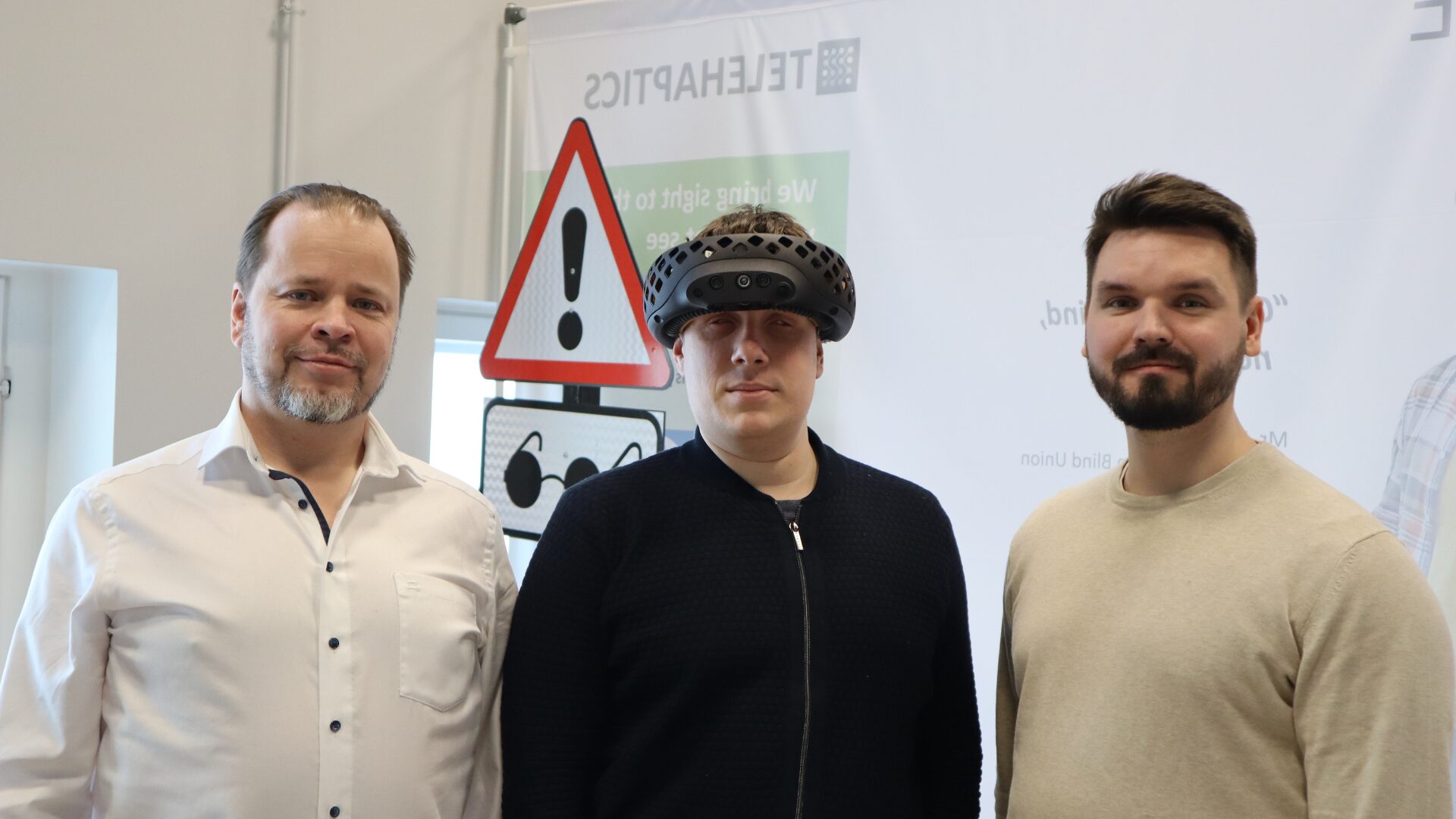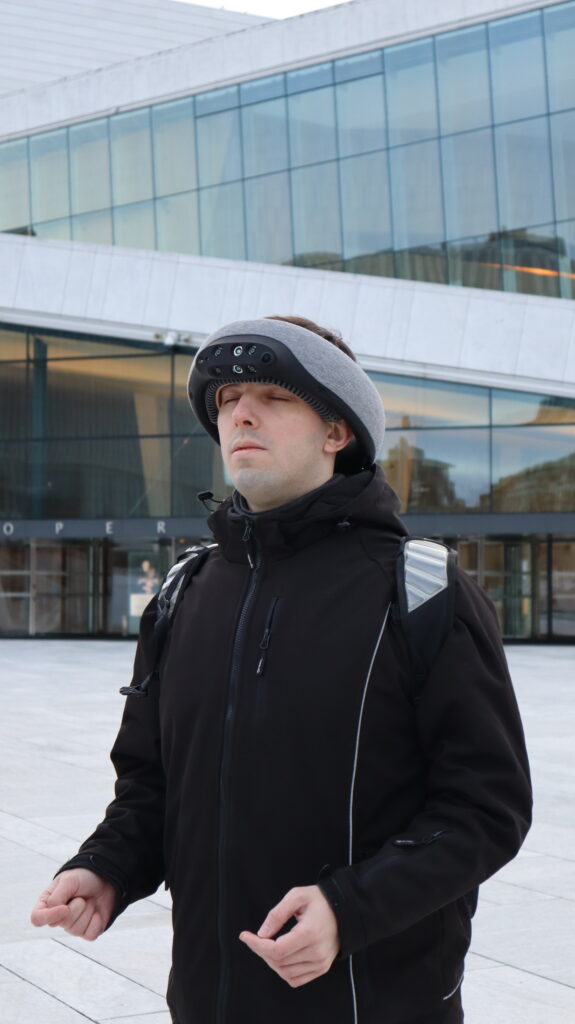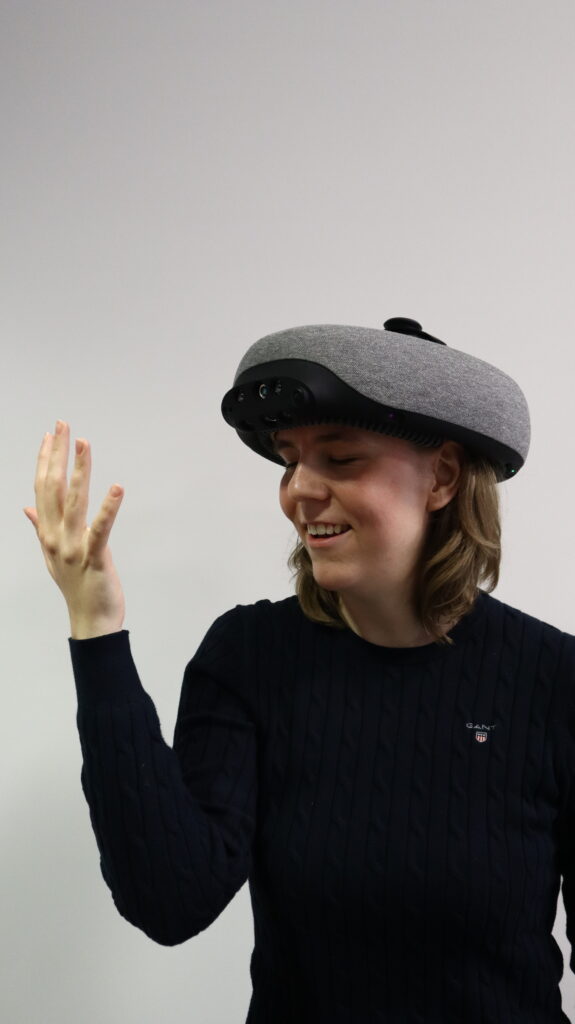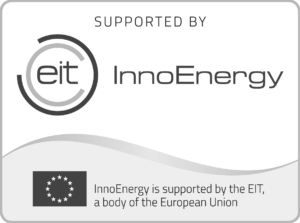08.03.2024
Innovation by an Estonian company expands the world for people with impaired vision

A new member of the Tehnopol Healthtech Community is 7Sense, which participated successfully in the Innovation Competition in Pärnu last year that was supported by Tehnopol. The company was founded some nine years ago, but they have been developing their unique haptic material for 15 years by now.
The Sales and Marketing Director of 7Sense Madis Päev said that the CEO of the company and inventor of the material, Johannes Väänänen, had been interested in haptics for a long time. “After hearing and sight had become digitalised, it was apparent that the greatest potential for a technological leap forwards at the time was in digitalising touch”, he said.
Väänänen was convinced that haptic technology would in any case start to be used in the future in cars, clothes, medicine and the defence industry, and nine years ago he had to decide whether to work on developing the material for military use or for medical use. He decided that he should work to give sight to the sightless.
The team at 7Sense has decades of experience in innovation between them, as the engineers and software developers have earlier worked in medicine and so know how to find quickly just the right solution for the challenges they face.
The solution created by 7Sense is different from that of their competitors because their device, named Superbrain I, is not limited to one dedicated function. “There are hundreds of smart devices aimed at the blind on the market, and they all try to solve the same problem in different ways. Our device is categorically different to the others because it can be used in a range of situations and is a platform that other specialised solutions can be built onto”, explained Päev. Their longer-term vision is to create a platform where developers can create their own happ-e or haptic applications.


The second major difference comes from the product development philosophy of 7Sense. Superbrain provides real-time information about the surroundings with no delay at all. This means that it doesn’t guide the user in what to do, but rather gives people with impaired vision information that they must themselves process and analyse in their own heads to decide what they will do next. “It’s like having a new sense or sensory perception“, said Päev. “This solution means that it takes very many users less than five minutes to learn how to use our device. Haptic perception is surprisingly natural and people can interpret the information they receive very quickly”.
He added that a lot of products are created using technology that interferes with some other sense, often hearing, for people with impaired vision. The practical result is that such solutions do not appeal to a lot of people. “Hearing is one of the most important senses for the blind. We want to give the user another sense without interfering with the senses they already have”, he explained.
The company has by now run hundreds of tests with users and has mainly received positive feedback. “People like our product development solution and the short learning curve. Alongside the technology in the device, we are putting a lot of emphasis on its visual appearance and making it ergonomic and comfortable”, said Päev. The user tests have also shown the device is not suitable for everybody though. People on the autism spectrum for example may be quite sensitive to the different signals and sensations and feel uncomfortable wearing the device.
“The most important thing for us is seeing people’s honest reaction the first time they use Superbrain. A lot of users don’t want to say directly what they think, but it is great to see their genuine smiles when they try the device for the first time. A lot of them find it an almost unbelievable experience”, Päev noted.
The company has from the very beginning targeted the international market, and so it is working with associations of the blind in Europe for example, who are supportive of their efforts. The Estonian market is small, but it has very good infrastructure and support, and the experience gained here can in future be applied in other countries of Europe.
Tehnopol has worked well with the company and supported it from the very beginning. Their expectation on joining the Healthtech Community was to get support and knowledge about working in medicine, and the information they have received so far has proven very valuable. “Of course we also hope to find partners that we can cooperate with on entering different markets, and maybe also to meet investors”, concluded Päev.
Are you interested in joining the HealthTech community at Tehnopol? Find out more about it here!












